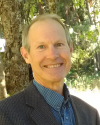- Spring 2021
Syllabus Description:
updated 3/29 11:40am
POLS 559 - Text as Data
John Wilkerson jwilker@uw.edu Bio/CV (for information about my research interests)
Office hours: By appointment on Zoom (or by phone). Thursday and Friday are my busiest days.
Overview
This class introduces computational approaches to collecting, formatting and analyzing text as data, as well as images and sound.
This is not a programming class. The main objective think about text as a quantitative data source, and to learn about the typical stages of a project as well as some common methods and tools.
In general, we are interested in the same methods (counting, grouping and scaling) that are used in other quantitative data projects. Just as the validity and reliability of any quantitative measure can questioned, the validity and reliability of text-based measures also deserve consideration.
Sequence
We begin by considering the measurement opportunities and challenges associated with any content analysis project.
We then work through the stages, including collecting text, extracting the important stuff (pre-processing); converting words to data; and then analyzing those data.
Although this is not a programming class, students will have to use and ultimately write scripts in Python and R in order to complete their final projects. The good news is that there are lots of helpful resources, such as your colleagues in the course, the WRF Data Science Lab, and a large number of on-line tutorials.
There will be regular homeworks but no exams. The homeworks should be viewed as opportunities to dig deeper. If you do the minimum, you will learn the minimum!
The most important assignment (and opportunity!) is an original and innovative research paper applying what we've learned in the class. We will discuss this in more detail, but everyone should be thinking about a project that could eventually lead to a publication (as opposed to just demonstrating that you can apply a method).
Grading
- Participation (20%) – Class attendance and contributions to in-class discussions and activities. Readings are for the listed date (they should be completed in advance).
- Homeworks (30%) – They are due Tues evening on Canvas unless otherwise noted.
- Research Project (50%) . We will be discussing potential projects early in the class and we’ll continue to discuss them. My office door is open (so to speak) for brainstorming! Deadlines: Meet to discuss proposal (by April 22); Accepted proposal (May 7); Final project (June 9)
Subjects to be covered (ideally)
Format of the class
We will have synchronous classes once per week. This year my goal is to free up more time for student presentations, discussion, and learning activities by pre-recording topic modules rather than using class time for lecture. It is absolutely essential that students watch these modules in advance of each class (so that we can start the class with common knowledge, discussion and questions).
Privacy
This course is scheduled to run synchronously at your scheduled class time via Zoom. These Zoom class sessions will be recorded. The recording will capture the presenter’s audio, video and computer screen. Student audio and video will be recorded if they share their computer audio and video during the recorded session. The recordings will only be accessible to students enrolled in the course to review materials. These recordings will not be shared with or accessible to the public.
Students who do not wish to be recorded should:
Change their Zoom screen name to hide any personal identifying information such as their name or UW Net ID, and Not share their computer audio or video during their Zoom sessions."
Academic honesty
Cheating and plagiarism will not be tolerated under any circumstances. A suspected instance will be reported and disciplinary actions may ensue. For further detail about the University of Washington’s academic honesty policy, please refer to this website.
Accommodations and support
Disability Resources for Students (DRS) offers resources and coordinates reasonable accommodations for students with disabilities. If you have not yet established services through DRS, but have a temporary or permanent disability that requires accommodations (this can include but not limited to; mental health, attention-related, learning, vision, hearing, physical or health impacts), you are welcome to contact DRS at 206-543-8924, or uwdrs@uw.edu. See this website.
- The Counseling Center and Hall Health are excellent resources on campus that many UW students utilize. Students may get help with study skills, career decisions, substance abuse, relationship difficulties, anxiety, depression, or other concerns.
- Counseling center website
- Hall health website
Washington state law requires that UW develop a policy for accommodation of student absences or significant hardship due to reasons of faith or conscience, or for organized religious activities. The UW’s policy, including more information about how to request an accommodation, is available at Religious Accommodations Policy (https://registrar.washington.edu/staffandfaculty/religious-accommodations-policy/). Accommodations must be requested within the first two weeks of this course using the Religious Accommodations Request form (https://registrar.washington.edu/students/religious-accommodations-request/).
